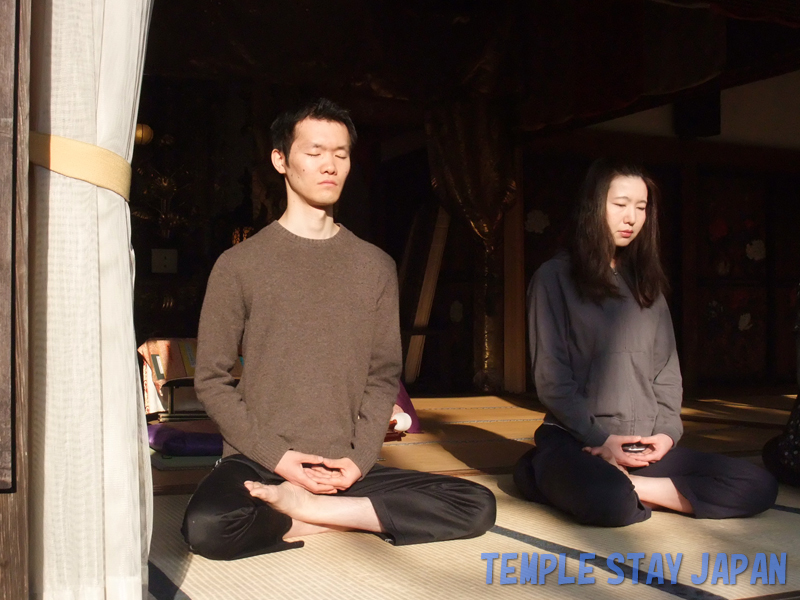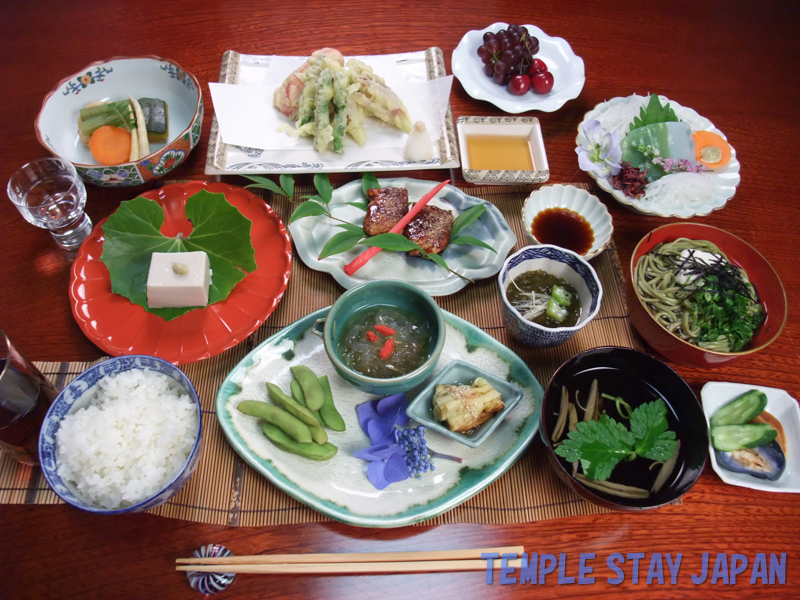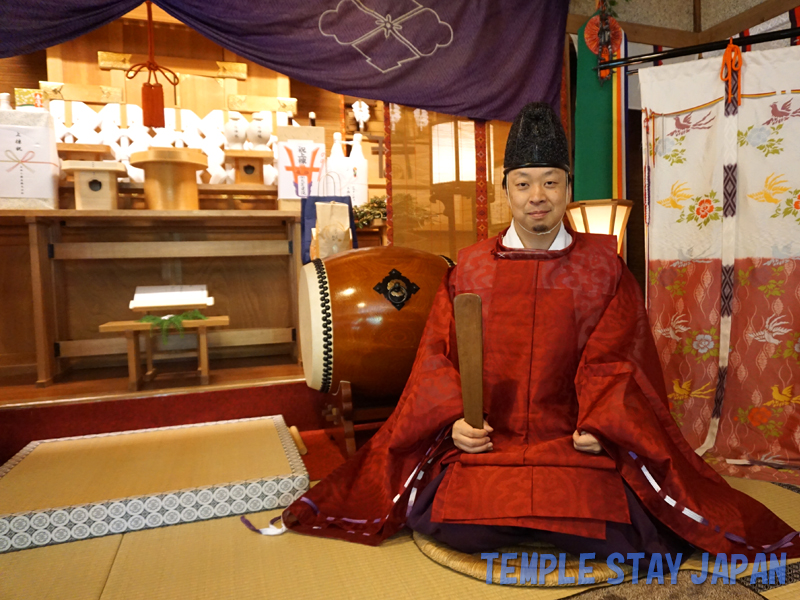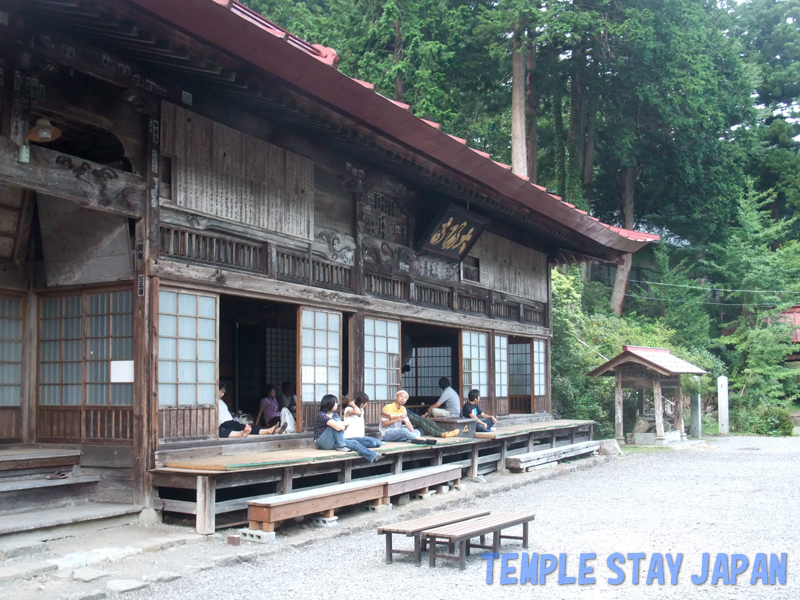There are temples and shrines that have accommodation facilities called “shukubo” in Japan. They used to be facilities for worshippers and followers. However, they have become casual places where anyone can stay. These days, shukubo are attracting attention not only as places to stay, but as places that let you experience Japanese culture.
What comes first is zazen. It is not that every shukubo offers you a zazen experience, but there are some that give zazen instruction to guests. You will feel time slowly and steadily moving around your body when you sit with your legs crossed trying to empty your mind. I became aware for the first time how much I acted through daily inertia when I sat very still, frozen in the moment.

You sit in tranquility for half an hour with your breathing controlled. The busier a person’s daily life is, the more relief he or she may feel. To refresh yourself, to relieve yourself from stress and anxiety or for your health, zazen is a program that is popular among many people now.
A lot of attention has been paid to the food served in shukubo. Japanese temples serve a kind of vegetarian cuisine called shojin. This is a cuisine completely free of fish and meat. The basics of shojin are to make the most of the taste of the ingredients while reducing the seasonings and using the ingredients without wasting food. From the perspective of nourishment, it contains nutrients, including food fiber, vitamins and minerals, which are often scarce in daily life. Therefore, shojin cuisine serves to prevent adult diseases.

Shojin food has been prepared from ancient times as the food for training priests. At a shukubo, dishes that are visually pleasing are served as food to please worshipers. It is referred to as the origin of Japanese food, and its value is being increasingly reevaluated these days.
Shukubo are not only accommodation facilities but also religious places that are part of a temple or a shrine. Guests also are required to follow the rules and display a sincere attitude. However, you do not have to be too stiff. From ancient times, Japanese temples and shrines have a history of accepting many people so that they could lead a happier life. If you respect the religions of others, whether Buddhist or not, you can stay at a shukubo regardless of your beliefs.

The wooden buildings of shukubo have warmth. The gardens, which can be viewed from the windows and corridors, are an authentic art of Japanese culture and represent the spirit of harmony with nature.

This website is the English version of “Shukubo Kenkyukai,” which studies journeys to stay at Japanese temples and boasts the largest amount of information. As this site consists of many people’s experience in staying at temples, some of the comments might be subjective. If you wish to actually stay at a shukubo, be sure to confirm with each of them beforehand. We do not bear any responsibility for any problems resulting from the content of our site.
Unlike inns and hotels, some shukubo lodgings have various rules as sacred places of esoteric training (which is one of the charms of shukubo). Please note that special attention must be paid to such rules. It would be appreciated if you would let us know if you find any incorrect information, etc.
